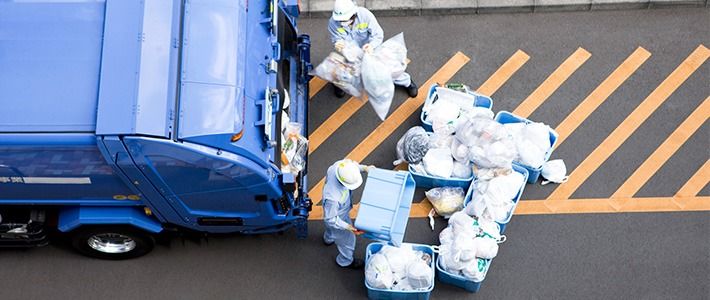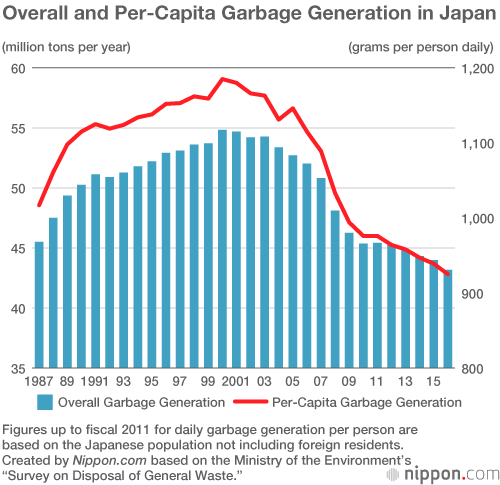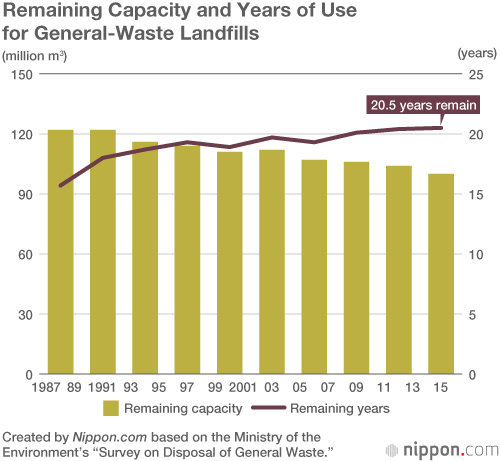
Too Much Waste Straining Japan’s Limited Landfill Space
Society- English
- 日本語
- 简体字
- 繁體字
- Français
- Español
- العربية
- Русский
Japan generated 43.17 million tons of general waste in fiscal 2016. This is equivalent to around 925 grams of garbage generated per day by every person living in Japan.
The amount of overall waste and the waste generated per person in Japan began to decrease from around the turn of the century, following the introduction of a number of recycling laws in the 1990s, including the Containers and Packaging Recycling Law, the Home Appliance Recycling Law, and the Food Recycling Law. But more needs to be done.

Underlying Japan’s garbage problem is the landfill issue. Even if the garbage collected by each municipality is incinerated, around 10% of the original weight remains in the form of ash, which must be buried along with nonburnable garbage in landfills.
Nationwide, there are 1,661 landfills with 99.963 million cubic meters of space. If garbage continues to be generated at the current pace, these landfills will be filled up in around 20.5 years. Some municipalities in the Kantō and Chūbu regions already are not able to secure adequate landfill space. In the case of Kantō and Chūbu, 12.9% and 14.1% of all landfill designated garbage, respectively, is buried outside the region. But it will not be easy for those regions to secure additional landfill space.
Innovative new methods for incinerating garbage and utilizing the resulting ash may help ease the garbage problem. But it will also be necessary for individuals to change their way of living to generate as little waste as possible, and for recycling to be further promoted to extend the use period of each landfill.
